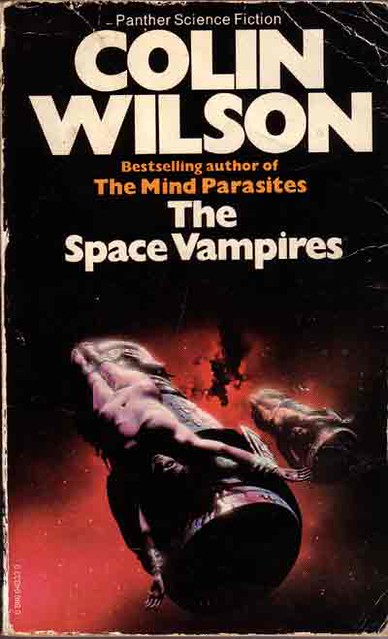Excerpts from a project I don't actually have time for, but wish I did.
You're a Mean One, Mr. Grinch
The webcomic XKCD once slyly pointed out that radio airplay of Christmas songs amounts to an extended nostalgia project for baby boomers, with the top twenty songs clustered neatly around the 1950s and 1960s. “You’re A Mean One, Mr. Grinch” is not among those top twenty, but is clearly part of the same trend, coming from the 1966 How The Grinch Stole Christmas television special.
It is difficult to account for its status in the Christmas canon on any grounds other than sheer nostalgia. Its only connection to Christmas is appearing in a holiday special. The lyrics don’t mention the holiday at all, instead just insulting the Grinch for six verses
Indeed, lyrically, the song seems almost anti-Christmas. It is a character piece meant to establish the main character of How the Grinch Stole Christmas, when the entire point of the character is that he’s missing the holiday spirit entirely. But his overall character arc over the course of the special isn’t contained in the song.
More to the point, the overall point of the special is in many ways a split decision. Yes, the Grinch makes nice at the end, but the point of the special isn’t the eventual reconciliation, it’s the giddy thrill of the Grinch trying to steal Christmas. The special asks us to revel in perversity with the thin justification that order is restored eventually.
And this carries through to the song. On the one hand, the song is a description of the villainous Grinch and his awful ways. But as much as the song condemns the Grinch, its pleasure is clearly in the perverse excesses of its invective. One central joke of the song is the way in which the final line steadily increases in size, from “you’re a bad banana with a greasy black peel,” which fits the actual musical phrase, up to “I wouldn’t touch you with with a thirty-nine-and-a-half foot pole,” which humorously crams too many syllables into one note, all the way up to “your soul is an appalling dump heap overflowing with the most disgraceful assortment of deplorable rubbish imaginable, mangled up in tangled up knots,” a description in which there are simply too many adjectives. (“Mangled up in,” in particular, exists only to sustain the phrase a little bit longer.)
This excess is, of course, quintessentially Seussian. But what is striking is not just the excess but the way in which it is overtly contrary to the supposed sense of the season. But the story of the redeemed curmudgeon has obvious history in Christmas - most obviously with Ebeneezer Scrooge. And while these stories are ostensibly about their main character’s redemption, they also show an important carnivalesque inversion of the usual order of things. Their presence deflates the gaudy artifice of Christmas.
The truth is, nobody in their right minds doesn’t want to punch the Whos in the face around the third “Dahoo Dores,” cloying little snots that they are. The Grinch becomes the vehicle in which a counter-narrative to the enforced and hollow artifice of Christmas can be explored. For all that the song belongs to the baby boomer nostalgia that chokes the life out of the holiday, it’s also the needed tonic - the vehicle by which we all get our needed “bah humbugs” out.
The only proper version, of course, is the original Thurl Ravenscroft vocal (from the soundtrack, not the special itself, although both are glorious). His thundering bass relishes every syllable of the song, belting out the final lines of each verses with all the reckless glee they require.
Let it Snow! Let it Snow! Let it Snow!
"Let it Snow! Let it Snow! Let it Snow!," is a 1945 piece that is firmly from the XKCD-noted "baby boomer Christmas nostalgia" block. While there certainly are some appalling pieces of dreck shoved into the Christmas canon due to this sort of nostalgia (I’m looking at you, "Jingle Bell Rock"), it also has some songs of fairly solid pedigree, and it must be said, "Let it Snow! Let it Snow! Let it Snow!" is among them.
The place to begin, I suppose, is the triple repetition of the title. “Let it Snow!” would be sufficient by any means - nobody, in casual conversation goes for the triple title. But there it is, complete with exclamation points. There’s a frenzied excess to this - a case of protesting too much. The overreach makes it difficult or impossible to read this as a straightforward paean to winter weather. There’s a sort of mania to it that makes it about more than just the weather.
In truth “Let it Snow!” (let’s go for simplicity) is the stablemate of “Baby It’s Cold Outside,” written a year earlier. Both feature romantic couples facing inclimate weather and a decision about going home. “Baby It’s Cold Outside” is, of course, the single worst Christmas song ever recorded, being as it’s a vivid depiction of a sexual predator (named as “wolf” in the lyrics) browbeating and seemingly drugging a non-consenting woman (named as “mouse”) into staying the night.
But “Let it Snow!” addresses the same basic subject matter with relative panache. The perspective of whomever’s home the couple is staying at is eliminated, with the song being a single-vocalist number from the perspective of the person deliberating over leaving. The singer thus has all the agency in the song, and is thus allowed to engage in a flirtatious give-and-take without the looming threat of sexual violence.
And the lyrics are, indeed, a give and take. On the one hand, the singer seems to suggest departure - they are “still goodbying,” and speak of how they will in fact “go out in the storm.” And yet their behavior suggests otherwise - they’ve brought supplies for popping corn, and while they may be goodbying, the goodbyes are clearly stretching out too long. The song is, in other words, looking for excuses to stay.
The excuse settled on is, of course, the weather. And thus the triple repetition of the title makes sense - a desperate plea for it to snow enough to provide an excuse for the singer to stay, and the singer drawing out the visit in the hopes that the snow will finally pile up sufficiently that they cannot possibly get home.
So the song is engaging in a coy flirtation, nudging towards spending the night and the sexytimes that entails, but deferring it out onto the weather. This requires a delicate balance of delivery, however. Many performances, the Vaughn Monroe original included, end up with a flat, declarative tone that obscures the give and take of the lyrics.
Other skilled singers run aground in different directions - Frank Sinatra attacks the song with too much fervor, all confident charm, such that he revels in the snow. Doris Day, on the other hand, slows the song down so much that there’s no room for the quiet sexiness - the song folds in on itself, reveling in its own beauty and losing the interaction with the unheard host. Dean Martin keeps it more under control, with a lightly teasing tone in his vocals that captures the flirtation perfectly.
But in the end, the song begs for a female vocalist. For my money, Lena Horne hits all the right notes. As a politically active African American singer already blacklisted in Hollywood, she could take a swagger in the delivery that rivals that of Sinatra’s version. But where Sinatra’s version is a clunking boast of a man who knows he’s getting lucky tonight, Horne’s version is something altogether more satisfying. There’s a playfulness to her swagger that makes it clear that everyone is aware of the game being played. The periodic explosions of brass lean into the giddy excess of the title line. And the foregrounding of female sexuality makes it the polar opposite of “Baby It’s Cold Outside.”
There are very few sexy Christmas songs that even rise to mediocrity. But this is one of the proper good ones: a cheeky celebration of winter seductions. I admit to personal fondness for this - on our third date, the Woman came over to my house to watch Sherlock, which she’d never seen. Her spending the night was not a surprise, but a snowstorm left her stuck the next night as well, and this, combined with the idiosyncrasies of her schedule, led to her basically moving in. Let it snow indeed.
O Come, O Come Emmanuel
The only widely recognized advent song, “O Come, O Come Emmanuel” is a piece of haunting anticipation. The chorus, with its exaction to rejoice, sits in marked contrast to the state of affairs described in the verses. Israel “mourns in lonely exile,” labor under “gloomy clouds of night,” and are on “the path to misery.” And yet the promised joy is entirely anticipatory - the only cause for rejoice offered is that Emmanuel will at some future point come.
The listener, in other words, is caught in a strange double bind. The song makes clear the misery of the present condition, and yet demands that we rejoice not because of the alleviation of suffering but because this suffering will at some nebulous future point be lifted.
Textually, the song descends from 6th-8th century antiphons called the O Antiphons, used in the last seven days of Advent. Each antiphon invokes Christ under a different name, stressing different aspects of his being.
The O Antiphons have a tightly wound structure, proceeding in order, O Sapienta, O Adonai, O Radix Jesse, O Clavis David, O Oriens, O Rex Gentium, and O Emannuel. The first letters in reverse spell ERO CRAS, translating to “Tomorrow, I will be there,” a clever bit of mirroring that is lost in the popular hymn, which moves O Emmanuel (the antiphon for December 23rd) to the first position, and sings an out-of-order selection of the others.
The standard progresion is Emmanuel, Oriens, and Clavis Davidica. That’s what’s used in the Robert Shaw Chamber Singers version on Songs of Angels - probably the best of the straight choral renditions - and on the Peter, Paul, and Mary version, which features Noel Paul Stookey accompanied by a choir. This latter version is a surprising treat, Stookey’s voice catching and trembling at the lyrics, soaring ecstatically on the “rejoices” while faltering in the verses. Few versions go further than that.
The lyrics used for the hymn date to the 12th century, and were originally a more rhythmic setting of the Latin text. This results in profound differences. The antiphons lack the strange call to rejoicing, and, indeed, do not focus particularly on present day suffering. Of the seven O Antiphons, only two, O Clavis David and O Oriens, focus on present misery, each using the phrase “tenebris, et umbra mortis,” or, in English, darkness and the shadow of death.
Beyond that, the rhythmic resetting dramatically alters the tone of the antiphons. The translation, O Emmanuel, for instance, goes from a fairly neutral text translating roughly “O Emmanuel, our king and lawgiver, the hope of the nations and their Saviour, come and save us, O Lord our God” to the bleak tone of abandonment struck by the initial verse.
This ambivalence of tone is fitting for a song drawn so heavily from the Book of Isaiah. A prophetic work, Isaiah describes the coming of the Messiah in largely militaristic terms, as a political revolution that will undo the tyranny of foreign rule, initially from an Assyrian monarch, and, in the latter portion of the book, from a Babylonian one. Upon the restoration of Judaic control of Jerusalem Yaweh will rule the world, and Jerusalem will be the seat of his power.
There is an obvious complication in reading Christmas in terms of Isaiah, then, which is that the Christian view of Christ as the Messiah leaves the bulk of these political promises unresolved and, more to the point, several millennia out of date. Within Christian theology the bulk of these become eschatological promises to be fulfilled in the Second Coming.
So when, in the 19th Century, John Mason Neale and Henry Sloane Coffin offered an English translation of “Veni, Veni, Emmanuel” and set to music a few years later by Thomas Helmore, who appropriated a 15th French processional for the purpose, the resulting song was one of yearning for remote objects.
It is worth, at this juncture, considering the state of Advent in the first place. From a Christian perspective in which Christ has been born, died, and been resurrected, what is anticipated is not an event but the commemoration of an event. Christmas does not itself change the theological state of the world. Emmanuel’s arrival does not come at the end of Advent. Which is fitting, as what is yearned for is the resolution to long dead political conflicts, framed in angry prophecy. Emmanuel, as written, cannot possibly come, as the world to which he is invoked is long since dead and buried.
The song, then, demands that we rejoice in the eventual arrival of something that at once cannot possibly arrived and has already arrived. The possibility of joy is, in other words, wholly absent from the song, leaving only the moment of suffering. And yet in that suffering comes a profound beauty. The song moves along in a minor key that breaks into the major key’s resolution at key moments - “Emmanuel” itself, in the first line, resolves from a D to a G, and the chorus begins with the G major, as opposed to the Em of the verse. Even as the song is contained in the minor key opening and finish.
And so in a song that is concerned with an impossible arrival from outside its confines the only moments of joy come from within the captive, mourning, and exiled world itself. This is advent - a period of anticipation not of some external force but of an internal state to be achieved.
Loreena McKennitt’s setting of the song, from her album A Midwinter’s Night Dream, is particularly moving. She reverts to the Latin lyrics, increasing the austere remove at which the listener is situated with regards to the promised arrival. In the absence of intelligible phrases we get only the music’s haunting tremors of hope in amidst the minor key gloom. Underneath the surface she goes one verse extra, adding the verse derived from O Adonai, which does not sing of present gloom but of “ancient times” in which the Lord existed “in cloud, and majesty, and awe,” a perfect representation of the gorgeous distance of the song’s promised beauty. As the song calls for the coming of what has already happened, we are left in the cold present, reaching the spots of warmth that we have.

 The Affordable Care Act did initially include a provision that would reimburse Medicare doctors for having discussions about, but not necessarily recommending, end-of-life options. But that was
The Affordable Care Act did initially include a provision that would reimburse Medicare doctors for having discussions about, but not necessarily recommending, end-of-life options. But that was 














